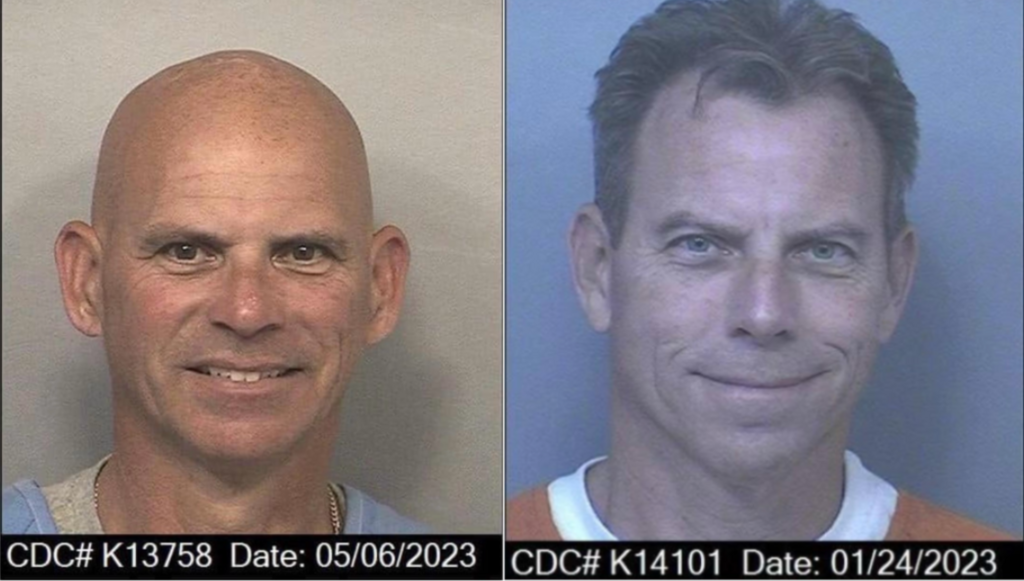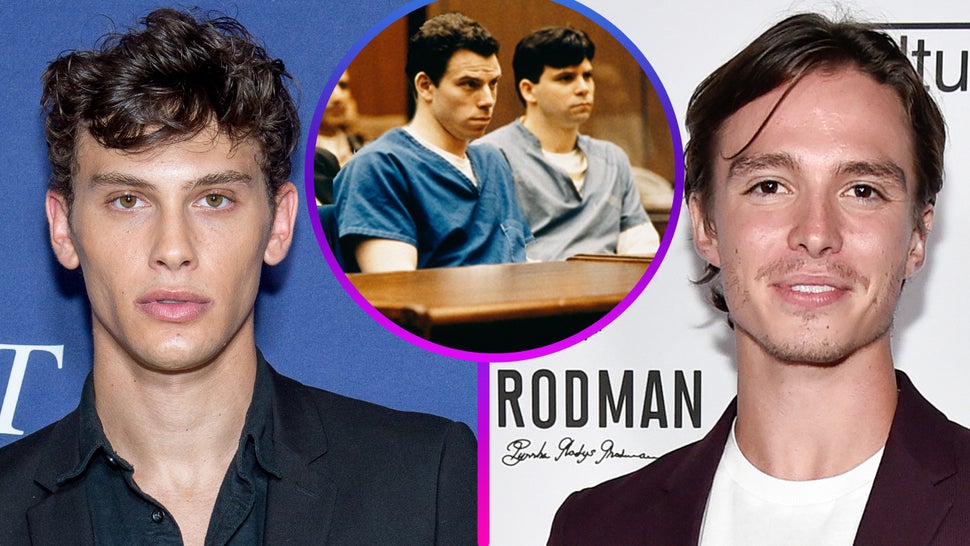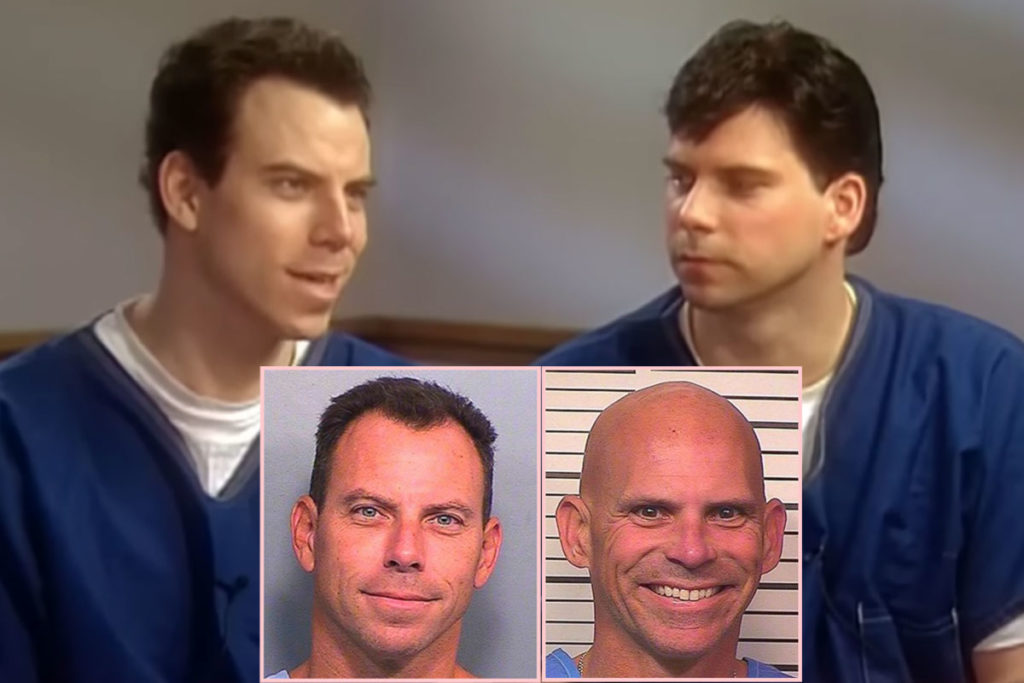Menendez Brothers Lawyers: The Intriguing Legal Battle And Its Impact
When it comes to infamous criminal cases, the story of the Menendez brothers is one that continues to captivate audiences worldwide. Back in 1989, Erik and Lyle Menendez made headlines after being accused of murdering their wealthy parents, Jose and Kitty Menendez. But what really set this case apart wasn’t just the crime itself—it was the intense courtroom drama that unfolded as their lawyers fought tooth and nail to save them from a life sentence. If you’ve ever wondered about the key legal minds behind the Menendez brothers’ defense, you’re in the right place.
This isn’t just another crime story; it’s a deep dive into the world of legal strategy, high-stakes drama, and the relentless pursuit of justice—or at least a reduced sentence. The Menendez brothers' lawyers played a crucial role in shaping the narrative of this case, turning it into one of the most talked-about trials in modern history. So, buckle up because we’re about to take you on a journey through the courtroom battles, legal strategies, and the lasting impact of this case.
Whether you’re a true crime enthusiast or simply curious about how the justice system handles high-profile cases, this article will give you all the details you need. From the initial trial to the appeals process and beyond, we’ll explore the key figures who shaped the outcome of this case and the lessons we can learn from it. Let’s get started, shall we?
- Dann Van Ling Alles Ber Den Partner Von Hans Klok
- Weihnachtsmarktfeeling Zuhause Champignons Wie Vom Profi
Table of Contents
- Biography of the Menendez Brothers
- Key Menendez Brothers Lawyers
- The Legal Strategy Behind the Defense
- Jury Selection and Its Challenges
- The Appeals Process: What Happened Next?
- Public Opinion and Media Influence
- Psychological Evidence: A Game-Changer?
- The Legal Impact of the Menendez Case
- Ethical Questions Raised by the Case
- Conclusion: Lessons Learned from the Menendez Brothers Lawyers
Biography of the Menendez Brothers
Before we dive into the world of the Menendez brothers’ lawyers, let’s take a moment to understand who these two young men were and the events that led to their infamous trial. Erik and Lyle Menendez were born into a life of privilege, growing up in a wealthy family in Beverly Hills. But beneath the surface of their glamorous lifestyle lay a dark and troubled reality.
Early Life and Background
The brothers’ upbringing was marked by allegations of abuse and dysfunction within their family. According to their defense, they were victims of severe emotional and physical abuse at the hands of their father, Jose Menendez. This claim became a central part of their legal strategy during the trial. But was it enough to sway the jury?
Here’s a quick rundown of their early lives:
- Sins N Lashes Wimpernserum Lifting Erfahrungen Mehr
- Elevator Mansion Luis Freitag Jacob Rott Co Was Du Wissen Musst
- Both Erik and Lyle attended prestigious schools and were expected to follow in their parents’ footsteps.
- Despite their privileged background, they reportedly struggled with feelings of inadequacy and resentment toward their parents.
- Their relationship with their parents was strained, with allegations of abuse surfacing during the trial.
Biographical Data
| Name | Date of Birth | Age at Time of Crime | Current Status |
|---|---|---|---|
| Erik Menendez | May 26, 1970 | 19 years old | Serving a life sentence without parole |
| Lyle Menendez | November 4, 1968 | 21 years old | Serving a life sentence without parole |
Key Menendez Brothers Lawyers
At the heart of the Menendez brothers’ defense were a team of highly skilled lawyers who brought their A-game to the courtroom. These legal titans weren’t just fighting for their clients’ freedom—they were also battling against public perception and media scrutiny. Let’s take a closer look at the key players in this legal drama.
Leslie Abramson: The Lead Defense Attorney
Leslie Abramson was the mastermind behind the Menendez brothers’ defense strategy. Known for her aggressive tactics and sharp legal mind, Abramson was determined to paint the brothers as victims of their own tragic circumstances. Her approach was controversial, but it certainly made waves in the courtroom.
Other Key Members of the Defense Team
While Abramson was the face of the defense, she wasn’t alone in her quest to save the brothers. Here are some of the other key players:
- Barry Scheck: A renowned attorney and co-founder of the Innocence Project, Scheck played a crucial role in analyzing forensic evidence.
- Peter Neufeld: Another co-founder of the Innocence Project, Neufeld worked alongside Scheck to ensure that all evidence was thoroughly examined.
- Mark Geragos: A high-profile attorney known for his work on high-stakes cases, Geragos joined the team during the appeals process.
The Legal Strategy Behind the Defense
One of the most fascinating aspects of the Menendez brothers’ trial was the legal strategy employed by their defense team. Abramson and her team took a bold approach, arguing that the brothers had acted in self-defense after years of abuse. This strategy was both innovative and controversial, sparking intense debate both inside and outside the courtroom.
Key Elements of the Defense Strategy
Here’s a breakdown of the main elements of the defense:
- Abuse Allegations: The defense argued that the brothers were victims of severe emotional and physical abuse, which drove them to kill their parents in self-defense.
- Psychological Evidence: Expert witnesses were called to testify about the brothers’ mental state and the impact of their alleged abuse.
- Forensic Evidence: The defense team meticulously examined every piece of evidence, looking for any inconsistencies that could cast doubt on the prosecution’s case.
Jury Selection and Its Challenges
Selecting a jury for such a high-profile case was no easy feat. The defense team had to navigate the challenges of finding impartial jurors in a case that had already garnered widespread media attention. This process was crucial to the outcome of the trial, as the jury would ultimately decide the fate of the Menendez brothers.
The Importance of Jury Selection
Jury selection is often referred to as the “silent battle” in any trial. Here’s why it was so important in this case:
- Media Influence: The case had been heavily covered in the media, making it difficult to find jurors who hadn’t already formed an opinion.
- Public Perception: The brothers were portrayed as spoiled rich kids in the media, which could have swayed potential jurors against them.
- Legal Expertise: The defense team had to ensure that the jury understood the complexities of the case, including the psychological and forensic evidence presented.
The Appeals Process: What Happened Next?
After the initial trial ended in a hung jury, the Menendez brothers faced a second trial, which ultimately resulted in their conviction. But the story didn’t end there. The brothers’ lawyers continued to fight on their behalf, appealing the verdict and seeking a retrial. This process raised important questions about the fairness of the justice system and the role of appellate courts in high-profile cases.
Key Appeals and Outcomes
Here’s a summary of the appeals process:
- First Appeal: The brothers’ lawyers argued that the trial judge had erred in allowing certain evidence to be presented, but the appeal was ultimately denied.
- Second Appeal: The defense team focused on procedural errors during the trial, but the court upheld the original verdict.
- Current Status: As of 2023, the brothers remain in prison, serving life sentences without the possibility of parole.
Public Opinion and Media Influence
From the moment the Menendez brothers were arrested, public opinion played a significant role in shaping the narrative of the case. The media’s portrayal of the brothers as privileged and entitled contributed to a widespread perception that they were guilty. But was this perception fair, or was it influenced by bias and sensationalism?
The Role of the Media
Here’s how the media influenced public opinion:
- Sensational Headlines: Newspapers and television networks often sensationalized the case, focusing on the brothers’ wealth and perceived privilege.
- Expert Analysis: Legal experts were called upon to provide commentary, sometimes swaying public opinion with their interpretations of the evidence.
- Social Media: In today’s world, social media plays a crucial role in shaping public perception, and the Menendez case was no exception.
Psychological Evidence: A Game-Changer?
One of the most controversial aspects of the Menendez brothers’ trial was the use of psychological evidence to support their defense. The defense team argued that the brothers had suffered severe emotional trauma at the hands of their parents, leading them to act in self-defense. But how convincing was this evidence, and did it sway the jury?
Key Psychological Findings
Here’s what the experts had to say:
- Abuse Allegations: Psychologists testified that the brothers had suffered from severe emotional abuse, which could have contributed to their actions.
- Mental Health Issues: The defense argued that the brothers’ mental state at the time of the crime was influenced by years of trauma.
- Credibility Questions: The prosecution challenged the credibility of the psychological evidence, arguing that it was based on the brothers’ own accounts, which could be biased.
The Legal Impact of the Menendez Case
The Menendez brothers’ trial had a lasting impact on the legal system, raising important questions about the role of psychological evidence, media influence, and the fairness of the justice system. This case set a precedent for future trials, particularly in cases involving allegations of abuse and self-defense.
Lessons Learned from the Case
Here are some of the key takeaways:
- Importance of Evidence: The case highlighted the importance of thoroughly examining all evidence, including psychological and forensic data.
- Media’s Role: It underscored the need for responsible media coverage of high-profile cases to ensure a fair trial.
- Legal Ethics: The trial raised questions about the ethical boundaries of defense attorneys and their obligation to their clients.
Ethical Questions Raised by the Case
Finally, the Menendez brothers’ trial raised important ethical questions about the role of lawyers in the justice system. Should attorneys prioritize their clients’ interests above all else, even if it means bending the rules? And how far is too far when it comes to legal strategy? These questions continue to resonate in the legal community today.
Key Ethical Considerations
Here’s a closer look at the ethical dilemmas:
- Client Loyalty: Lawyers have a duty to defend their clients to the best of their ability, but where do they draw the line?
- Public Trust: The case tested the public’s trust in the legal system, particularly in cases involving high-profile defendants.
- Moral Responsibility: Some argue that lawyers have a moral responsibility to ensure that justice is served, even if it means challenging their clients’ accounts.
Conclusion: Lessons Learned from the Menendez Brothers Lawyers
In conclusion, the Menendez brothers’ trial was more than just a sensational crime story—it was a testament to the power of legal strategy, media influence, and
- Sensation Leyla Lahouar Sieg Antrag Zukunftsplne
- Cockyboys Enthllt Ein Blick Hinter Die Kulissen Exklusiv

The Menendez Brothers 2024 Drusi

Menendez Brothers 2024 Cast Jacqui Nissie

Menendez Brothers Claim To Have NEW Evidence Of Parental Sexual Abuse